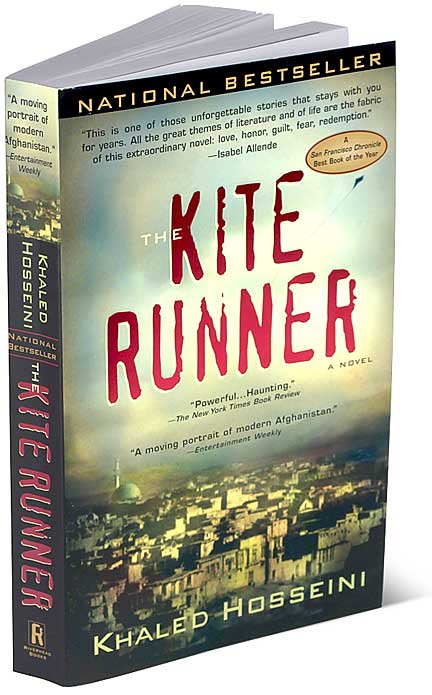 I'm not going to give a long review for this one. It's been a best seller, and you can read a lovely review of it at my friend Lory's blog, among other places. It's a story of redemption (and of this there is little doubt, as in the first chapter someone tells Amir, the narrator, "There is a way to be good again"). The book is simply detailed, in a manner that gives one a better appreciation of what Afghanistan used to be, before the Soviets, civil war, and the Taliban essentially destroyed it. There's a great deal of sadness, as the narrator's story is at times little happier than that of his country.
I'm not going to give a long review for this one. It's been a best seller, and you can read a lovely review of it at my friend Lory's blog, among other places. It's a story of redemption (and of this there is little doubt, as in the first chapter someone tells Amir, the narrator, "There is a way to be good again"). The book is simply detailed, in a manner that gives one a better appreciation of what Afghanistan used to be, before the Soviets, civil war, and the Taliban essentially destroyed it. There's a great deal of sadness, as the narrator's story is at times little happier than that of his country.The first part of the book could be a novella on its own, telling of Amir and his childhood best friend Hassan, who was the son of his father's servant. Class and race are as much a part of this story as they would be in any American book -- Amir takes his status of privilege for granted, and in many ways denies his friendship because Hassan is just a servant and a Hazara (a minority ethnicity). Hassan is in many ways a saint, always there for Amir despite Amir's repudiation. Amir's father, Baba, thinks highly of Hassan as well, and thus Amir is also jealous for his father's affection, something he has trouble obtaining due to his lack of the manly attributes his father desires in a son.
This part of the story is told in flashback, but of the final part of the book, back in the present, it would reveal too much to tell more than that Amir gains the chance to "atone" for his mistreatment of Hassan. Once the particular way to make good is presented to Amir, the reader is left with little doubt what the resolution will be, though the trials he must endure to get there are not as obvious.
I enjoyed it, but can't say I loved it. It's a good read though, and I think it's well worth checking out.
Rating: 7/10